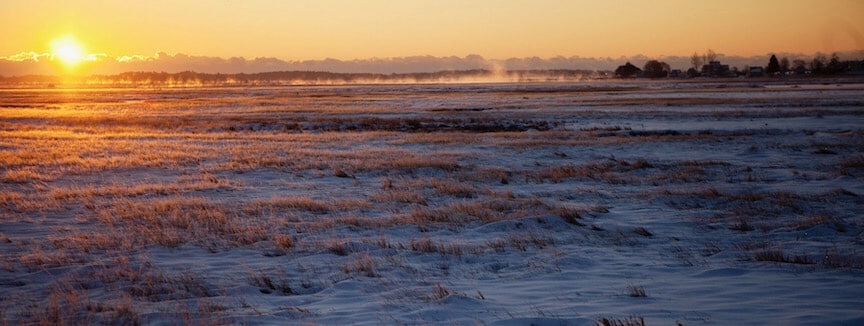 Today is an important holiday for the nation, for Maine, and for us at Maine Audubon. It is a day officially set aside for acknowledging our land’s original inhabitants, but also the centuries of oppression and injustice committed against them. For Maine Audubon, it is a day we must renew and assert our commitment to Wabanaki nations and communities–the Passamaquoddy, Penobscot, Micmac, Maliseet, and Abenaki–as well as other indigenous people in diaspora throughout the territory now known as Maine.
Today is an important holiday for the nation, for Maine, and for us at Maine Audubon. It is a day officially set aside for acknowledging our land’s original inhabitants, but also the centuries of oppression and injustice committed against them. For Maine Audubon, it is a day we must renew and assert our commitment to Wabanaki nations and communities–the Passamaquoddy, Penobscot, Micmac, Maliseet, and Abenaki–as well as other indigenous people in diaspora throughout the territory now known as Maine.
Maine Audubon is a land owner, with deeds for roughly 2,400 acres statewide which we manage for wildlife habitat and public access. While we are proud of permanently protecting this diverse habitat from development, we must also acknowledge the colonialism and racism that have led to today’s property lines and maps. After over 350 years of intrusion, a 1975 court case brought first by the Passamaquoddy Nation eventually led to the Maine Indian Claims Settlement Act, signed by President Jimmy Carter exactly forty years ago this weekend (October 10, 1980). For the first time in its 200+ years of existence, the United States government seemed to begin to acknowledge that territories white settlers claimed, renamed, and exploited had been taken illegally.
Perhaps most troubling and ironic about this problematic history for Maine Audubon and other land conservation organizations is how many Wabanaki values, practices, and ways of knowing we actually aspire to share and emulate. As we tackle today’s challenges of climate change, habitat loss, and corporate greed, we need look no further than indigenous culture for guidance on seven-generation sustainability, respecting Earth as our mother, and the connectedness of all living things. The vibrant Wabanaki communities that the first white settlers encountered in what is now Maine welcomed the visitors with these ideals, and today’s sovereign tribal governments continue to legislate, administer, and manage land and other resources accordingly. Maine Audubon is committed to seeking, embracing, and helping to share this wisdom and experience, and to working with Wabanaki leaders and partners on holding up historic ideals and practices that remain as relevant as ever.
In order to begin to acknowledge this history, decolonize our own teaching, and rematriate our land stewardship practices, Maine Audubon is investing in our own learning and actions. For example, our senior staff and board of directors have committed to First Light Learning Journey, a multi-year effort to form bridges and reciprocity between conservation organizations and Wabanaki leaders. Our education staff is working closely with Portland Schools and numerous Wabanaki consultants to help develop a new Pre-K to 12 Wabanaki Studies curriculum that all hope will become a model for districts statewide. Lastly, our programs will also feature a heightened emphasis on Wabanaki culture and traditional ecological knowledge, including this week’s Speaker Series event with Suzanne Greenlaw, whose research and work serves as a powerful model for multicultural challenges and solutions. We welcome other suggestions and ideas, especially from our Wabanaki neighbors and members.
We urge our members and supporters to join us in studying and reflecting upon this history today, and along with us in the future. Vibrant Wabanaki-led organizations such as the Abbe Museum, Maine Wabanaki REACH, Nibezun, and the tribal government websites are rich sources of information and programming. First Light Learning Journey also maintains an excellent set of resources to help provide critical context for its participants and others.
